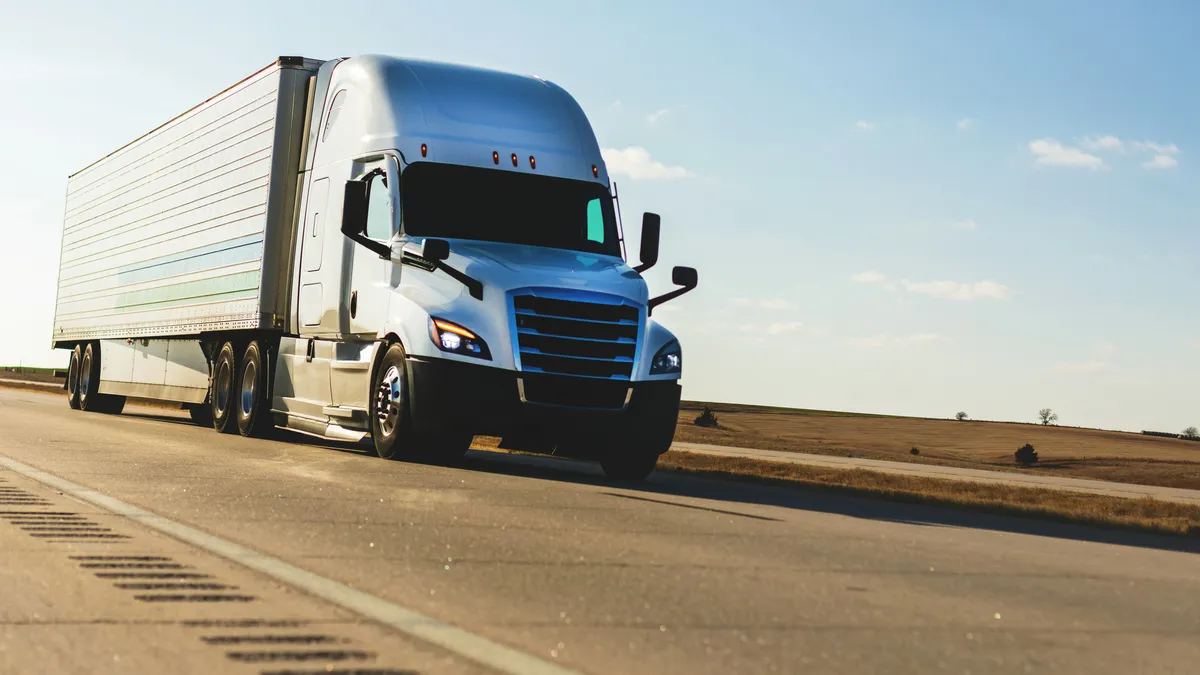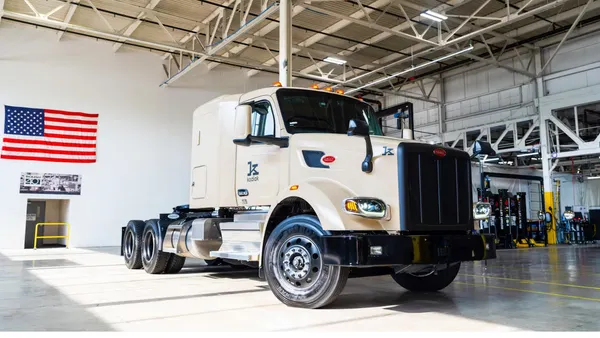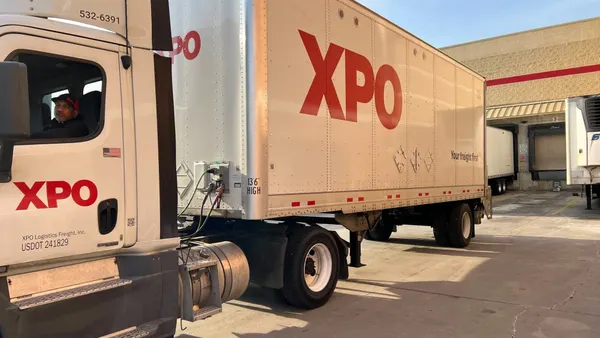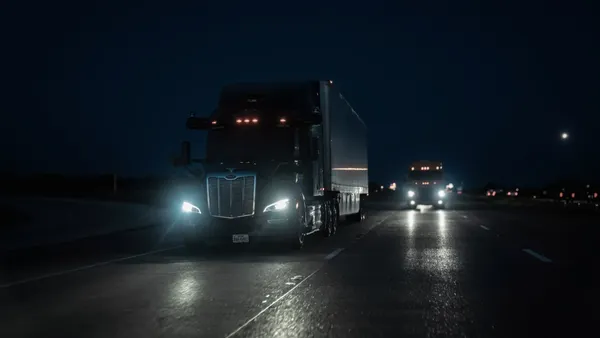Dive Brief:
- Daimler AG has established Daimler Truck Fuel Cell GmbH & Co. KG to bring all its fuel-cell research on heavy-duty trucks under one roof, according to a Monday news release by the German company.
- Volvo Group's fuel-cell division will be part of the subsidiary. Daimler Truck AG entered into an agreement with Volvo Group in April to develop and produce fuel cell systems for heavy-duty commercial vehicles and other applications. Fuel cell electric vehicles (FCEVs) are competing with battery-electric vehicles (BEVs) for the non-diesel truck market.
- Daimler Truck and Volvo Group plan to start production of heavy-duty FCEVs for commercial sales in the second half of the decade, Daimler said.
Dive Insight:
Daimler Truck's moves in Europe come a year after Roger Nielsen, CEO of Daimler Trucks North America (DTNA), said the American side will focus on BEVs, not hydrogen fuel cells.
"The road to emissions-free transportation is going to be driven with battery-electric vehicles," Nielsen told attendees at the ACT Expo, held in April 2019 in Long Beach, California. "I believe the future is electric."
Now Daimler appears to have a two-part strategy: BEVs in the United States, and FCEVs in Europe. It comes as a number of other OEMs and fleets are scurrying toward hydrogen-supplied FCEVs.
Most recently, Nikola went public after merging with VectoIQ. But the company decided to build BEVs and FCEVs. The company said it expects to roll out its Nikola Tre Class 8 BEV, followed by the Nikola Two Class 8 FCEV, starting in 2023. Hyundai is shooting for multiple innovations with its HDC-6 Neptune truck, which uses hydrogen fuel cells and is also autonomous. The truck was unveiled in October 2019 at the North American Commercial Vehicle Show. And Toyota and Hino will work jointly on a Class 8 FCEV, with a goal to reduce the companies' emissions of new vehicles by 90%, based on 2010 models, by 2050.
Hydrogen's larger problem is that it needs refueling stations, and those stations need a steady supply of hydrogen. That's easier to do in places such as Canada, which has pledged to use its hydroelectric resources to help produce hydrogen, said Mike Roeth, executive director of the North American Council for Freight Efficiency (NACFE). Daimler AG said some of the FCEVs will be made in Canada.
In general, hydrogen supply stations are more difficult to set up and maintain than electric charging stations, Roeth said. Hydrogen-fuel electric vehicles create a logistical concern because they would require a new type of fuel station be built across the U.S. As an incentive to fleets, Nikola promised to build 700 hydrogen fueling stations in the United States by 2030. Nikola's first such station is at its Phoenix headquarters, used for testing, according to Colleen Robar, a Nikola spokeswoman.
One advantage for FCEVs is they have longer range than BEVs.
All the movement in the market, stimulated by government goals, means hydrogen fuel cells will be a viable technology, even though it has been touted in previous decades. But the technology never became attractive to OEMs, for a variety of reasons such as logistics and costs. Now the government is encouraging it.
"Fuel cells have been around for 50 years," Roeth told Transport Dive. "It seems like now, yes, it's happening."
Roeth said that one benefit Daimler and Volvo can get out of the joint venture is data. That data will help decide how much of their fleets should be diesel, electric or fuel cell-powered. The data will not just be based on FCEV performance, but how easy it is to operate an FCEV in each region, he said.










